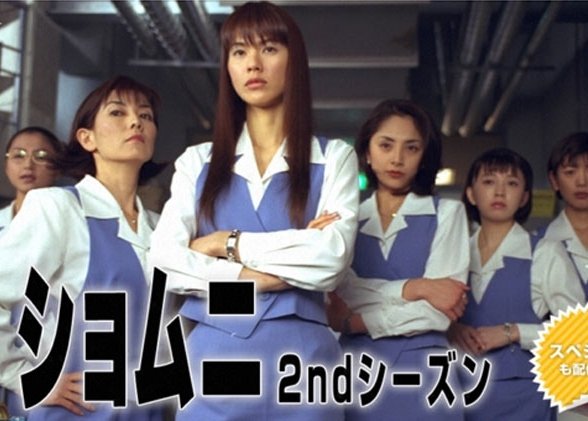 Cat-Loving Haruki Murakami and the Abundance of Movie Adaptations
Cat-Loving Haruki Murakami and the Abundance of Movie Adaptations
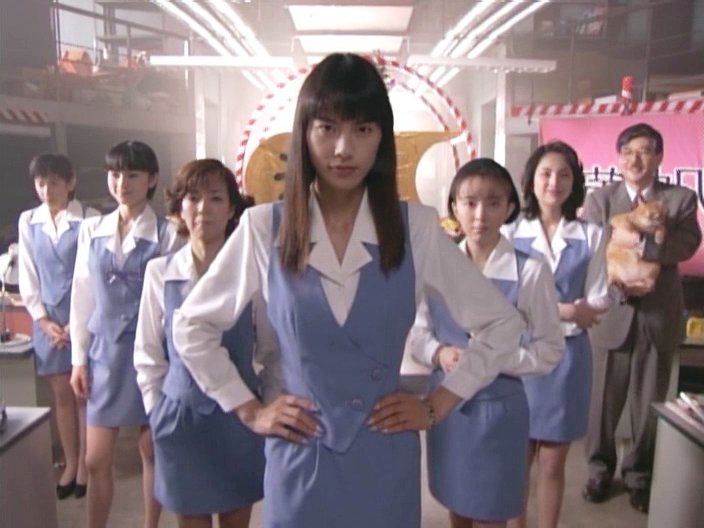
No matter whether we're in uniforms or wear suits, we are all professional office ladies! Being professional means being responsible for one's actions. When there are problems, we will try to save the situation. Office ladies won't be bullied by your sort!
Is your daily job getting you down? Do you hate doing menial tasks and interacting with people who are as fake as a teenager’s driving license? The remedy is here! Push that elevator button and head to the storage room where Shomuni (literally General Affairs Section 2) is located.
In a desperate search for those 90s Jdrama aesthetics, I decided to pick up Shomuni back in early April this year. I played the first episode just for laughs with zero expectations but… 2 hours later, I realized that I had already watched 3 episodes! Needless to say, after 4 seasons (amounting to 49 episodes in total), I was left with sorrow that it was the end. Power Office Girls (official international title) definitely deserve wider recognition among the MDL community. This is my retrospective look at Shomuni drama.
Shomuni started off as a comedy/slice-of-life manga series created by Hiroyuki Yasuda, which was released in 9 volumes between 1996 and 2000. It tells the story of a company section that serves as “the graveyard for female office workers”. The manga proved to be so popular that FujiTV decided to make a drama adaptation, putting none other than Masayuki Suzuki himself (the producer of GTO (1998) and Hero (2001)) in control of the series. The drama was originally projected to fail in the ratings, but, during the original broadcast, the first season immediately became no. 1 drama of 1998.
Synopsis |
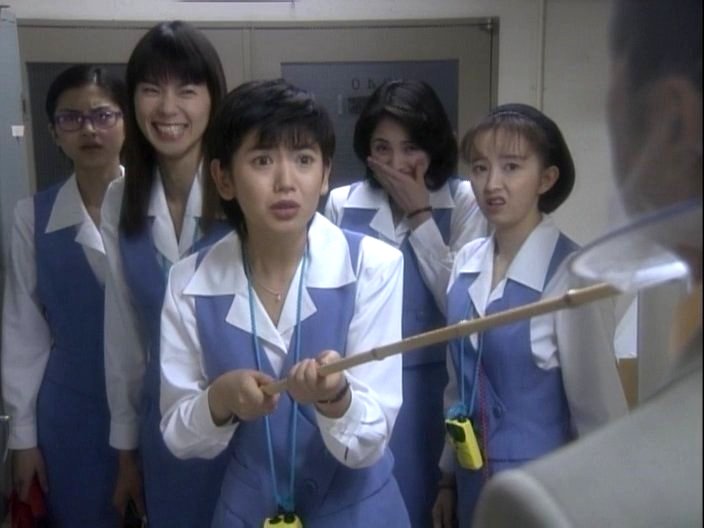
The story of the drama goes like this: Sawako Tsukahara (Kotomi Kyono) is a young office worker at Manpan Corporation. Unfortunately, she unknowingly engages in an affair with a married colleague. As a sort of punishment, she is transferred to Shomuni (General Affairs-2). This section is a dumping ground for office ladies who committed some kind of misconduct which affected the company in one way or another. The team of Shomuni has different duties than other sections. Their purpose is not to do business, but to maintain the functionality of the building and its personnel. During the first few days of working there, Tsukahara learns that no work is big or small and that she has friends whom she can rely on.
The Characters |
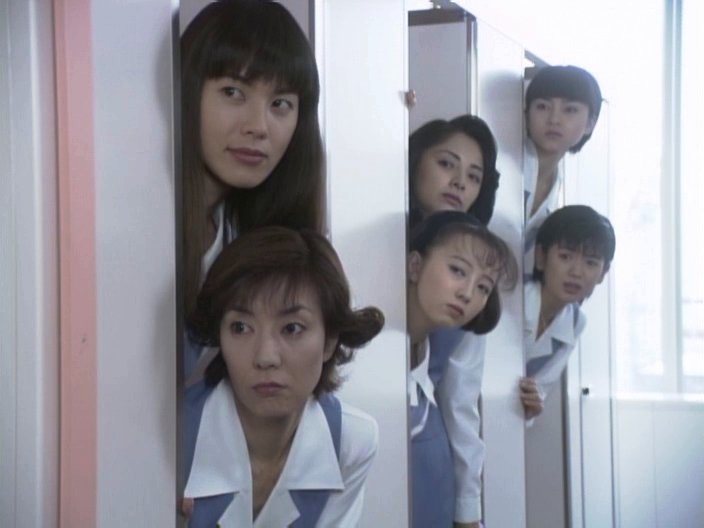
The secret as to why Shomuni is so awesome lies in the vibrant personalities of the section. The six office ladies are vain, vile, vindictive, but they can also be valiant when worst comes to the worst. Chinatsu Tsuboi (Makiko Esumi), the group’s leader, seems more like a heroine taken from delinquent anime due to her challenging attitude. Kana Miyashita (Atsuko Sakurai) is famous for her beauty which drives top executives crazy. Rie Himukai (Yumiko Takahashi) is basically a clairvoyant who always gives accurate (but slightly vague) predictions about the future. Azusa Tokunaga (Keiko Toda) is a spirited lady who is obsessed with the stock market and finding a husband. Last but not least, Ume Maruhashi (Mai Hosho) is a resourceful worker whose desire is to become the company’s president one day. The section is headed by Koji Inoue (Leo Morimoto), an absent-minded but kind chief who looks after a stray cat.
Indeed, Shomuni ladies are outcasts who perform menial jobs (for instance, replacing light bulbs or organising social events), but they do them diligently. When tragedy hits (like mobbing, kidnapping, hostile takeover, or economic espionage), they step into action like The A-Team (though often in pursuit of personal gain). Instead of a battlefield, they operate in a toxic office environment.
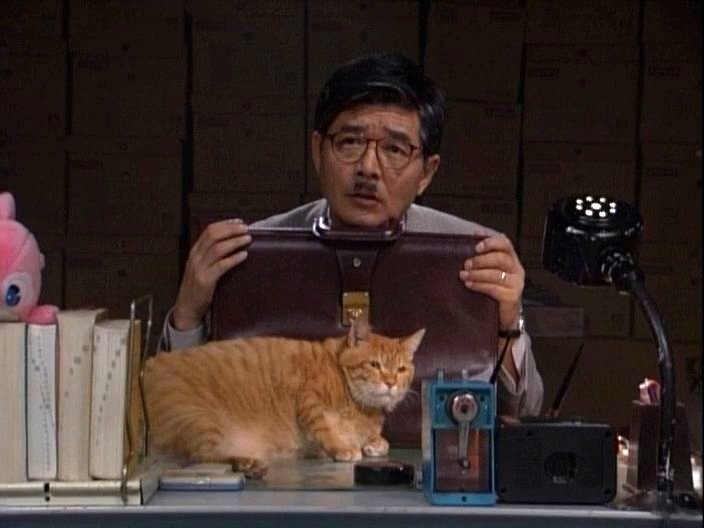 | 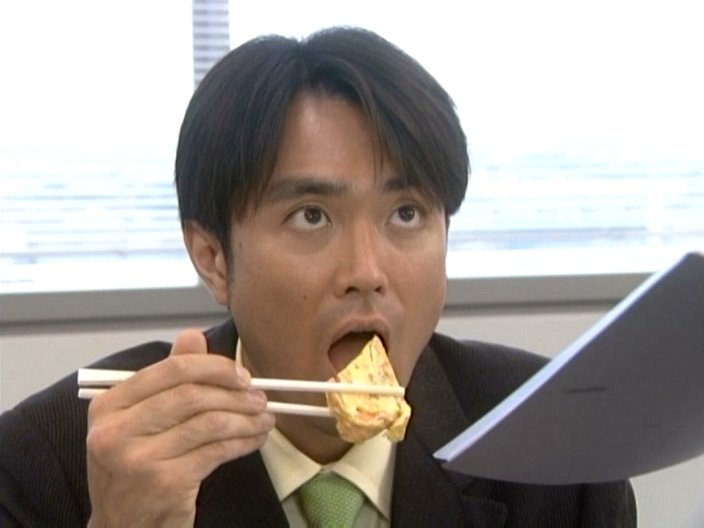 | 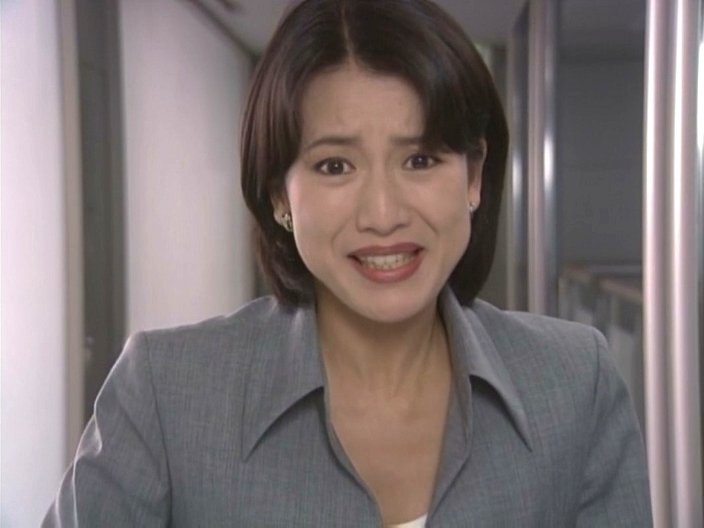 |
Supporting characters also have an opportunity to shine. I love how the main protagonists frequently clash in a corridor with female members of the Secretariat led by Sugita (Naho Toda). It is also hilarious to see HR managers Terasaki (Katsumi Takahashi) and Nonomura (Toshihito Itoh) constantly scheming as to how to close down Shomuni. In addition, the character of Ukyo (Ken Ishiguro) is one of the few male workers who is focused on doing his job while not outwardly hating Shomuni.
In Season 4, the majority of the cast is replaced, but more about it later. Now let’s go through each season.
Season 1 (1998) |
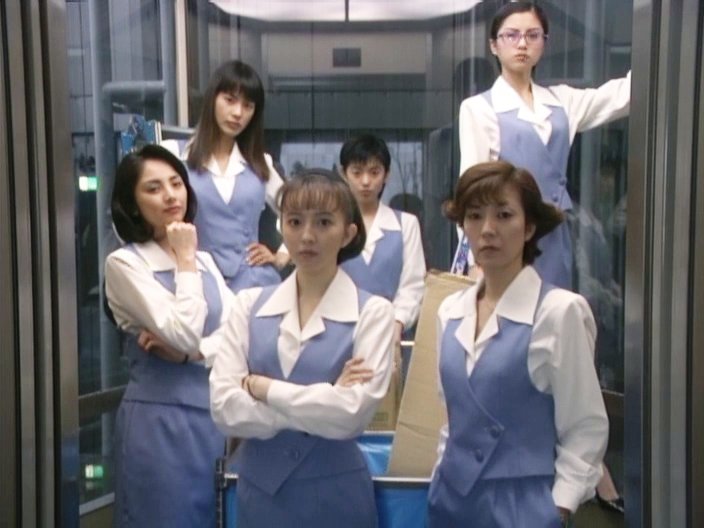 The season that started it all. Initially, I thought that Tsukahara is going to be the main heroine of the drama, but actually, all Shomuni ladies have an opportunity to shine. I guess my favourite episode is the one focusing on Tsuboi and Ukyo who accidentally end up getting handcuffed(!). Unfortunately, there is a major continuity error in the series because one of the episodes ends with a seventh member joining the section, but this character does not appear and is not referenced later on. Oh, and the wonderful finale! Shomuni can overcome any disaster.
The season that started it all. Initially, I thought that Tsukahara is going to be the main heroine of the drama, but actually, all Shomuni ladies have an opportunity to shine. I guess my favourite episode is the one focusing on Tsuboi and Ukyo who accidentally end up getting handcuffed(!). Unfortunately, there is a major continuity error in the series because one of the episodes ends with a seventh member joining the section, but this character does not appear and is not referenced later on. Oh, and the wonderful finale! Shomuni can overcome any disaster.
Season 1 was followed by two awesome SPs released in 1998 and 2000, respectively. I have to say that both episodes have interesting stories with a few action elements. The first special (to date without English subtitles) centres around Tokunaga and her attempts to get married, whereas the second special is a heist/revenge flick with the great Nene Ohtsuka appearing in the guest role.
Season 2 (2000) |
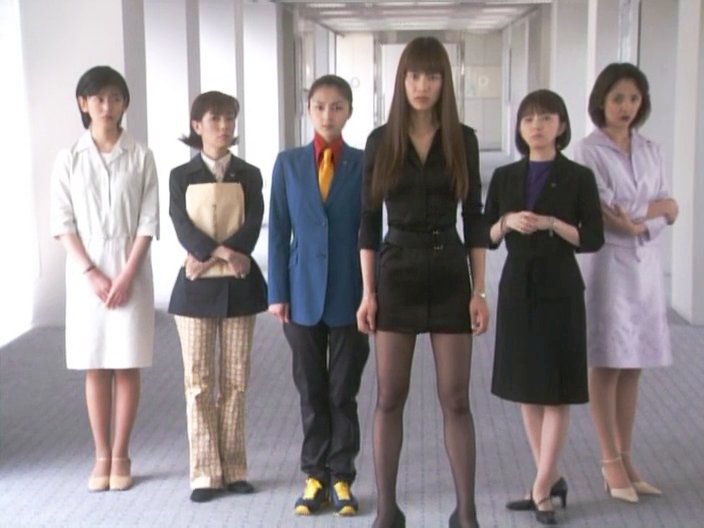
Shomuni 2 is definitely my favourite season. It seems to be more structured than the previous one; meaning that in each story, Shomuni ladies change the life of one individual (either male or female) for the better. I liked that this time they joined forces with a disgruntled employee, Kamiya (played by the hilarious Ikki Sawamura). In addition, I absolutely love the episode in which Tsuboi and Sugita are forced to switch their posts because of Section Refresh! programme. Another great story is the one where Ume teams up with a strange girl to save workers who can’t get out of the storage room. With regard to the finale… Ocean’s Eleven ain’t got nothing on Shomuni! Additionally, the intro and end credits of this season are such a blast!.
Shomuni Final (2002) |
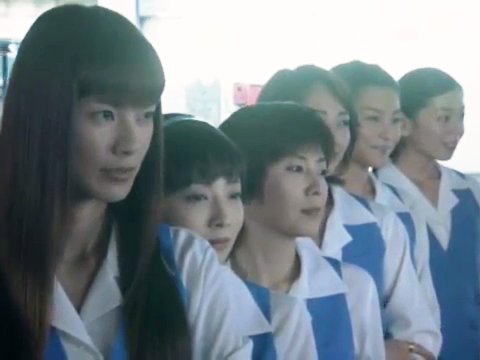 Season 3 was intended to be the last one, as the title suggests. Honestly, I think that it is as good as the second season. Because of a merger, the company becomes "George & Smith Manpan Co." in episode 2, which results in the replacement of some supporting characters. I liked all the stories, and I loved the dynamics between Shomuni and the new President (Takeshi Masu). The episode about Ukyo who is cheated into buying outdated video games is so touching! The series concluded with an electrifying finale (more economic espionage and conspiracies!)
Season 3 was intended to be the last one, as the title suggests. Honestly, I think that it is as good as the second season. Because of a merger, the company becomes "George & Smith Manpan Co." in episode 2, which results in the replacement of some supporting characters. I liked all the stories, and I loved the dynamics between Shomuni and the new President (Takeshi Masu). The episode about Ukyo who is cheated into buying outdated video games is so touching! The series concluded with an electrifying finale (more economic espionage and conspiracies!)
The season was followed by the final SP called Shomuni Forever (2003). Running at 130 minutes, this is the swan song to original Shomuni heroines, bringing drama to a close after 5 years. The office ladies have to deal with a hostage situation yet again, but this time, the plot has a double twist. There are lots of funny as well as touching moments. What is more, I’m glad that the journey began with Tsukahara in episode 1 and also ended with her in SP’s epilogue. In other words, Shomuni Forever is the perfect ending.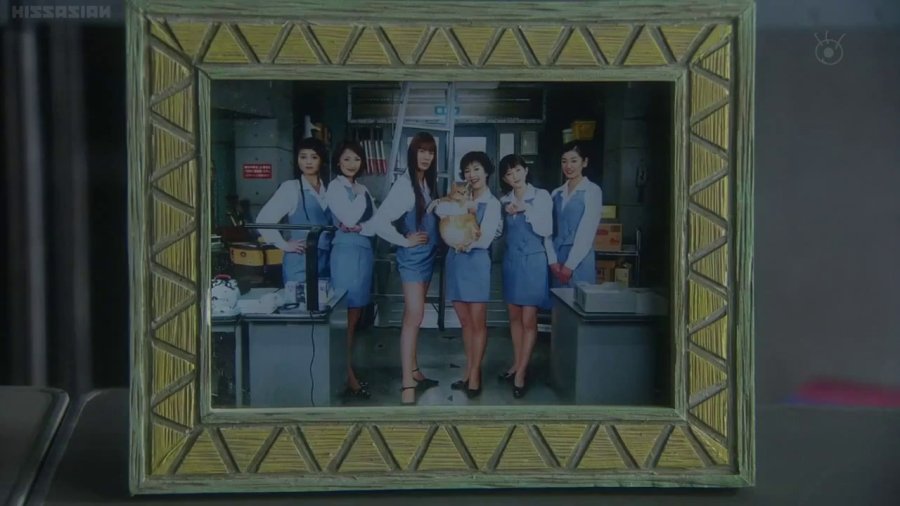
Shomuni 2013 |

Well, 10 years have passed, and FujiTV decided to give another go at Shomuni, following the popular trend of refurbishing good old franchises. In all honesty, I have many issues with this particular season…
My first reaction to the poster was like: Oh, there are new characters. Why they did this? This feels like a reboot. I’m not going to like this. OMG Sakura Ando is in it!!! Needless to say, I played episode 1 in a heartbeat. The first 10 minutes were awesome (return of the original cast members, lots of nostalgic references, Katsumi Takahashi’s evil laugh, and the soothing voice of Leo Morimoto). Unfortunately, things started to go downhill as the episode progressed.
Do not get me wrong, Shomuni 2013 is not bad by any means, but in my opinion, it pales in comparison with preceding entries. I’m totally fine with the idea of Chinatsu leading the new team of office ladies, but they are merely carbon copies of the original protagonists. For instance, Madoka (Becky) is a control freak just like Ume (Mai Hoshi), Reiko (Sakura Ando) is a clairvoyant just like Rie (Yumiko Takahashi), Fukuda (Keiko Horiuchi) likes money just like Tokunaga (Keiko Toda), Musuzu (Kanna Moriya) is a cutie just like Kana (Atsuko Sakurai), etc. If the heroines had unique personalities, the season would have been much more interesting.
Nevertheless, if you have not seen previous seasons and you are not really interested in what happened before, then you will probably enjoy Shomuni 2013. To be honest, I am convinced that the fourth season with the original actresses returning could have worked out (they still look the part!)
From the things I liked, I definitely enjoyed performances of Tsubasa Honda, Shohei Miura, and Kosuke Suzuki. However, I still feel that this season could have been better, at least in terms of scripting.
Theatrical Movie (1998) |
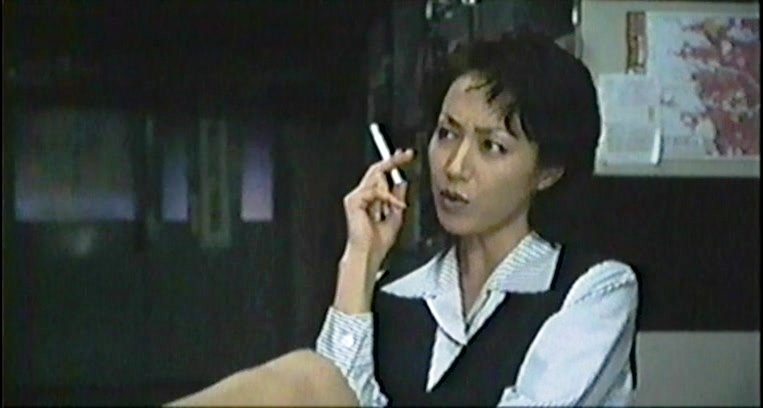
Did you know that there actually was a Shomuni movie back in 1998! It was produced independently by Shochiku and released 4 months after the drama. Due to the lack of FujiTV’s involvement, the film has a completely different cast, with Reiko Takashima playing the role of Chinatsu Tsuboi (picture above). The producers obviously wanted to capitalise on the series by making the viewers think that the theatrical film is a follow-up to the drama (just as in the case of the successful Bayside Shakedown movie at that time). Nevertheless, the movie flopped at the box office and, to date, it's hard to find it online. The only sources of information about it are JapaneseWiki and IMDb (which has 13 photo stills). As much as I love Reiko Takashima, I can’t bear the fact that the film was made without the original actresses.
Trivia |
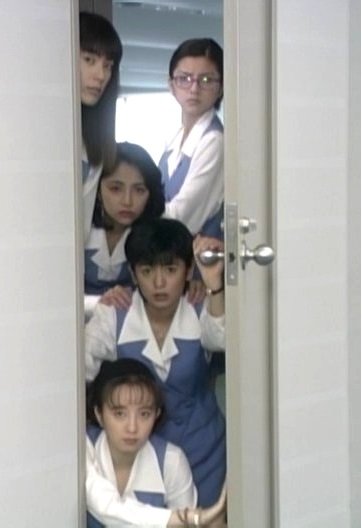 |
|
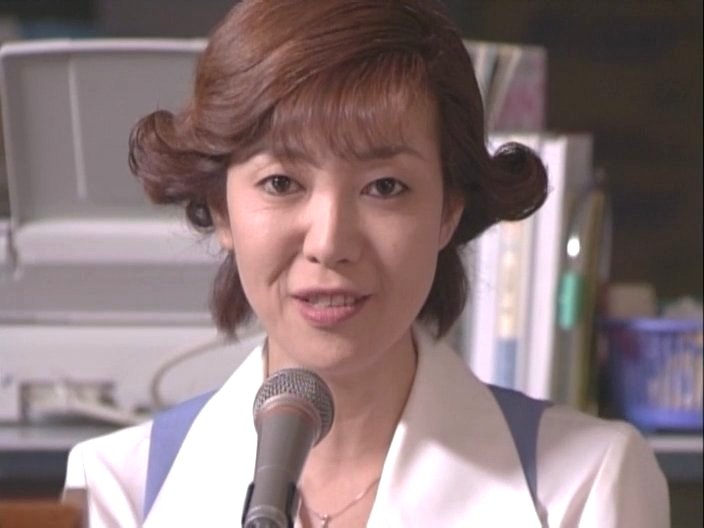
Personal fan round-up |
| Favourite season | |
| Favourite team | 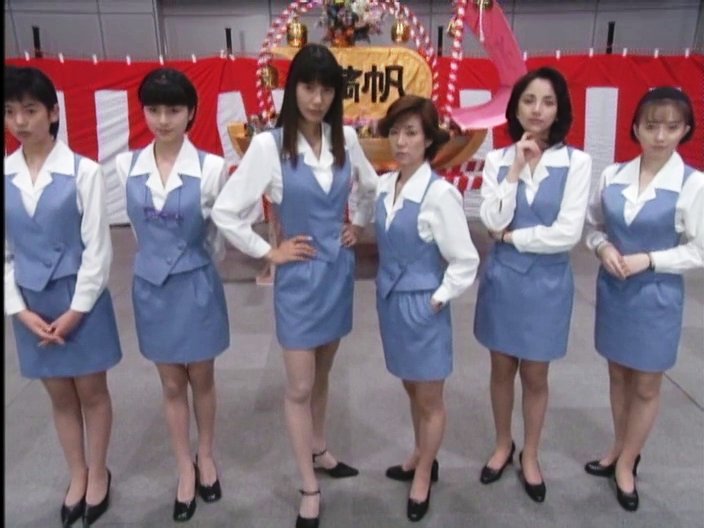 The Original Team The Original Team |
| Favourite supporting character | 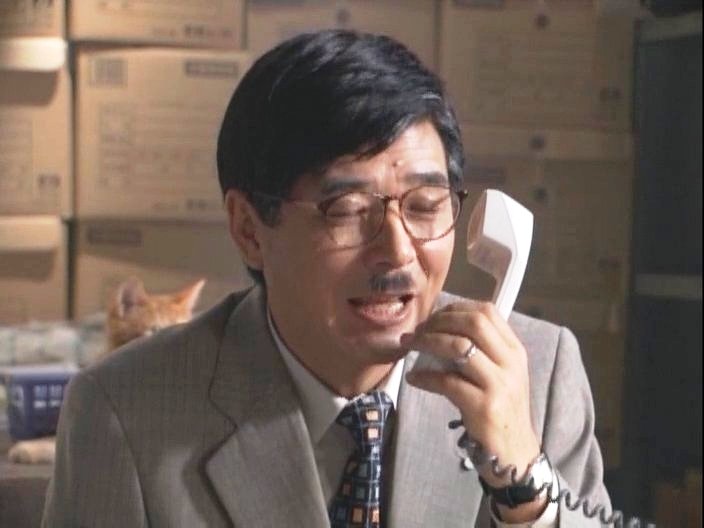 Inoue Kacho Inoue Kacho |
| Favourite villain | 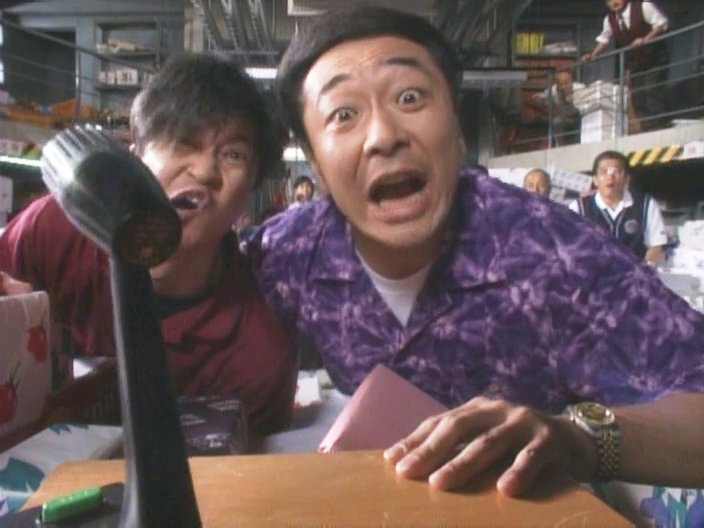 Terasaki Bucho Terasaki Bucho |
| Dream-come-true spin-off |  Shomuni Dies Hard: Manpan headquarters has been taken over by Hans Gruber himself and our creative office ladies have to save the day (and also take over some of that booty from the vault). xD Shomuni Dies Hard: Manpan headquarters has been taken over by Hans Gruber himself and our creative office ladies have to save the day (and also take over some of that booty from the vault). xD |
I suspect that some male drama lovers may not feel encouraged to check out Shomuni because of girl power vibes, but do not be afraid. This drama is so much more than just a play on gender stereotypes. Shomuni is part of the pantheon of classic Jdramas like GTO, Odoru Daisousasen, and Hero, in which a group of individuals makes a difference in a society that thrives on power relations and disregard to hardworking men and women. In reality, where people die from "karoshi" and experience “pawa hara”, Shomuni ladies step into action and draw the line between the acceptable and the unacceptable practices at a workplace.
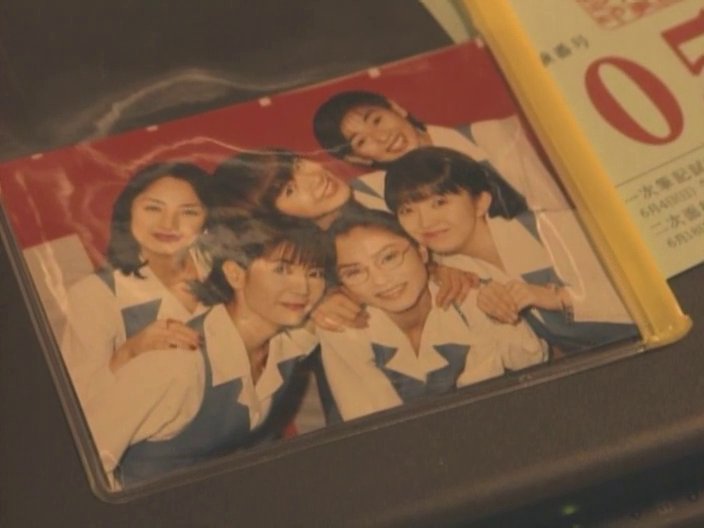
Sources: JapaneseWiki * AsianWiki * MyAnimeList * IMDb * Thomas the Tank Engine Wiki (1) & (2) * Karoshi * Power Harassment (JapanInterCultural) * A lawmaker’s abuse of her secretary has Japan talking non-stop about “pawa hara”
Ebisuno92's Previous Articles: The Power of Transformation: Celebrating 45 Years of Super Sentai * “Come on over, Spiritual Phenomena!” TRICK, A Franchise Retrospective * From Best Korea with Love: An Introduction to North Korean Dramas & Movies (with Seonsaeng) * Cursed Cassettes, Countdowns, and Corpses: A SFW Guide to the Ring Series * Blast from the Past: Did Bayside Shakedown Destroy Japanese Cinema? * Weekend Recommendations: Father Knows Best * Godzilla’s on the Loose: 65 Years of Kaiju Rampage * An Ultra Fan's Guide to Yeoh Michelle * Blast from the Past: A Guide to “Girls with Guns” Genre * Weekend Recommendations: Old School Movies * Ebisuno92's Weekend Movie Picks * "Watashi, Shippai Shinai No De!": Daimon Michiko as the Ultimate Doctor-Hero (with ReikaBleu)
So this was my retrospective look at Shomuni series.
Have you seen the drama? Please share your thoughts in the comments.
As always, thank you for reading!
Edited by: Yuanwei (1st editor)

